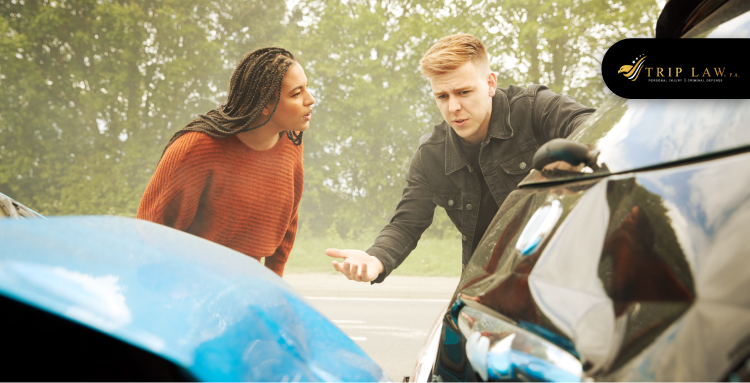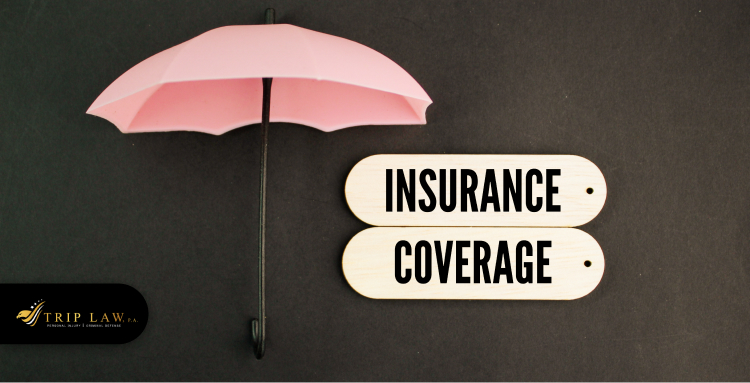
Blogs
November 28, 2024
What to Do if You’re Hit by an Uninsured Driver at Fault in Wisconsin

Getting into a car accident is stressful enough, but it can be even more frustrating when the other driver turns out to be uninsured. In Wisconsin, where all drivers are required to carry uninsured motorist coverage, you may wonder what steps to take next if you find yourself in this situation.
Fortunately, you have options to pursue compensation for your injuries and damages. Today we’re going to discuss the essential actions you should take immediately after an accident with an uninsured driver, how your insurance can help, and the legal options available to ensure you receive the support you need during this challenging time.
(1) What should you do immediately after the accident?
After an accident, it’s completely understandable to feel overwhelmed. The physical and emotional distress can turn your world upside down, leaving you feeling lost and uncertain. In these challenging moments, it’s important to remember that taking certain steps can help ensure your safety, provide legal protection, and facilitate proper documentation.
You’re not alone in this; many have faced similar situations, and there are ways to navigate the aftermath with care and support. Here’s what you should do:
Calling the police: First, you need to inform your local authority. You must report the accident to local law enforcement if there is any personal injury or death. You can also report to the police in case of property damage if there is property damage valued at $1,000 or more, or at least $200 in damage to government-owned property other than a vehicle according to Wisconsin Statutes 346.70. The police will document the incident and file a report.
Document the scene: Gathering important information can be a crucial step toward ensuring your well-being and protecting your rights. If you’re able, try to collect the names, addresses, driver’s license numbers, vehicle registration details, and insurance information from everyone involved. Taking photographs of the accident scene, any damage to vehicles, and relevant road conditions can also be helpful. Additionally, if there are witnesses present, gathering their statements can provide valuable support for your case.
Seeking medical attention: If you’re in an accident, prioritize your safety. Assess yourself and others involved for injuries. If anyone is injured, call 911 for medical assistance. Moreover, you need to keep your medical bills and documents of your injuries.
Not accepting liability: When an uninsured driver is at fault, they may deny responsibility and attempt to shift the blame onto you. In any situation, avoid saying anything that could suggest you are fully or partially at fault.
(2) How Do You Identify an Uninsured Driver?

In Wisconsin, the driver at fault for an accident is typically responsible for the damages. It’s important to know that all drivers in the state must carry auto insurance. If you find yourself in the unfortunate situation of being involved in an accident with an uninsured driver, understanding their insurance status can be crucial.
This knowledge allows you to file a claim under your uninsured motorist coverage, which is a necessary component of all Wisconsin auto insurance policies. This coverage can provide important financial support for medical bills, property damage, and other losses you may have experienced due to the accident.
Here’s what you need to consider to spot an uninsured driver:
An uninsured driver does not have valid auto insurance for their vehicle. If you are involved in an accident and the other driver cannot provide proof of insurance, they may be uninsured.
A driver may also be termed uninsured if their liability insurance is insufficient to fulfill Wisconsin's minimal coverage standards.
If a driver acts strangely for instance he flees the scene of an accident without providing their information, they are effectively acting as an uninsured driver.
(3) How Should You Notify Your Insurance Company?
Wisconsin's Safety Responsibility (SR) Law protects you after a car crash and provides an incentive for damages. Furthermore, it keeps the guilty party accountable by restricting their car registration and license if the at-fault party refuses to pay. Notifying your insurance carrier after an accident is an important step in ensuring that you get the coverage you require.
When you reach out to your insurer, try to provide essential details like the date, time, and location of the accident, along with the names and contact information of everyone involved and a brief description of what happened. Remember, you’re taking an important step toward getting the financial support you need as you walk through this challenging experience.
Note: Don’t confess liability about the accident to the insurance company until you've spoken with an attorney. It is important to limit your conversation to factual information.
How does Uninsured Motorist (UM) Coverage help you in Wisconsin?
In Wisconsin, uninsured motorist coverage is mandatory for all auto insurance policies.UM coverage can help pay for medical bills resulting from an accident caused by an uninsured driver. If injuries from the accident prevent you from working, UM coverage may compensate for lost income. This coverage can also provide compensation for pain and suffering associated with injuries sustained in an accident
Are There Other Insurance Coverages That Could Help?
Underinsured Motorist (UIM) coverage: This is optional but strongly recommended. It covers you when the at-fault motorist carries insurance but the policy limits are insufficient to pay your losses. Minimum limits for UIM are usually $50,000 per person and $100,000 per accident.
Medical Payments Coverage (MedPay): This optional coverage helps pay for medical expenses for you and your passengers in the car.
(4) What Are Your Coverage Options and Limitations?

Understanding your coverage choices, especially Uninsured Motorist (UM) coverage in Wisconsin, is important for ensuring you are sufficiently protected in the case of an accident. Here's a breakdown of your coverage options, restrictions, and potential difficulties in receiving compensation.
➢ Understanding how Uninsured Motorist (UM) Coverage Works in Wisconsin
In Wisconsin, UM coverage is required for all auto insurance policies. The minimum coverage limits are $25,000 per person for bodily injury and $50,000 per accident for total bodily injury. UM coverage applies when you are involved in an accident with an uninsured driver or a hit-and-run situation. It can cover medical expenses, lost income, and pain and suffering.
➢ Challenges You May Face in Getting Compensation
You can better prepare yourself to handle incidents involving uninsured or underinsured drivers in Wisconsin effectively if you know the potential challenges:
Proving liability: It can be difficult, especially if the other driver denies responsibility or there are no witnesses.
Improper documentation: A lack of sufficient paperwork (such as police reports or medical records) might make it difficult to establish the validity of your claim.
Insurance Company Delays: These types of claims require significant documentation, extending the payout process.
Dispute Over Coverage Limits: If the at-fault motorist has low or no insurance, finding the appropriate compensation might be challenging.
(5) How do Milwaukee Legal Pros help you with legal action?
Do not hesitate to get in touch with us if you live in Milwaukee or the state of Wisconsin and would like guidance on how to manage an accident with an uninsured or underinsured driver. Even if you were in an accident and you are not sure if it was properly reported to the police, you can contact us. Here’s how we can help you:
Milwaukee attorneys are well-versed in Wisconsin state laws and regulations, ensuring that your case is handled according to local legal standards.
We can help to gather evidence, negotiate with insurance companies, and represent you in court if necessary.
You will get assistance in filing claims for personal injuries sustained due to accidents or negligence
If your case involves an appeal, our legal professionals can navigate the appeals process, represent you before administrative law judges, and help you ensure the compensation you’re entitled to.
Our Latest News













At Trip Law we set out to create a unique law firm where outstanding immigration representation and a deep commitment to humanity go hand in hand. Hardam H. Tripathi was a former legal professional in the federal government.
